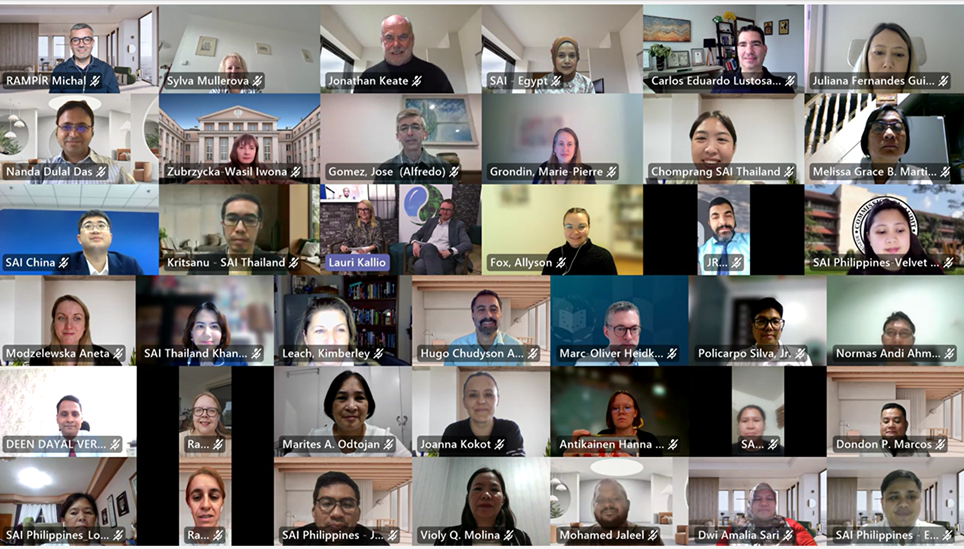The INTOSAI WGEA 20th Steering Committee meeting was organized online from Helsinki
08.11.2024
The 20th INTOSAI WGEA Steering Committee meeting was organized last week from 28 until 31 October 2024.
The meeting was officially opened by Auditor General of SAI Finland, Chair of INTOSAI WGEA Sami Yläoutinen on Monday 28 October. On the first day of the meeting, Secretary General Vivi Niemenmaa presented some key results from the INTOSAI WGEA 11th survey, after which current Work Plan project leaders of Green Fiscal Policy Tools (European Court of Auditors and SAI USA) and Nexus Climate-Biodiversity (SAI Canada) gave updates on the state of the projects and possible ideas for deliverables. On Tuesday, the Secretariat and Assistant Secretary General Mohamed Ibrahim Jaleel gave a brief presentation on a project of creating a generic guidance document for environmental auditing, using AI-tools and archived publications of the WGEA. This was followed by updates on the projects of Sustainability Reporting by SAI Thailand and SAI Indonesia and Environmental Accounting by SAI UK. Wednesday, the third day of the meeting, was dedicated to cooperative projects. The Steering Committee got updates on the INTOSAI Donor Cooperation Working Group on Climate Change and its P2P initiative, the cooperative audit on Climate Change Adaptation Actions by IDI and ClimateScanner by SAI Brazil. On the final day of the meeting, the Steering Committee discussed the format of the WGEA products, the upcoming Work Plan 2026-2028 and other future plans, e.g. the 23rd Assembly and choosing the next Chair in 2025.
In this meeting, each day featured an interactive session in breakout rooms, where participants had the opportunity to share ideas and have discussions on the ongoing projects, common messages and future needs of the WGEA. These interactive discussions received good feedback from the participants!
The Secretariat was pleased to note how well the online execution of this meeting performed. As you might already know, intercontinental flights generate CO2 emissions around 1500-2000 kilograms per round-trip, if estimating distances from Helsinki, Finland, where the WGEA Secretariat is based currently. Videoconferencing also produces carbon emissions – one hour of streaming has been estimated to produce emissions between 150 and 1000 grams. Nonetheless, the environmental impacts of an online meeting are significantly smaller compared to a meeting organized in-person.
The efficiency and manageability of the 20th WGEA Steering Committee meeting in an online format led us in the Secretariat to wonder, if such virtual meetings could be sustained in the regular meeting rotation of the INTOSAI WGEA alongside in-person meetings. According to the 11th INTOSAI WGEA survey, meetings and Assemblies were considered among the most useful WGEA products – hence, the convenience of these meetings could be further enhanced by adopting an online format every now and then, especially for Steering Committee meetings.

 INTOSAI WGEA 20th Steering Committee meeting group picture
INTOSAI WGEA 20th Steering Committee meeting group picture

